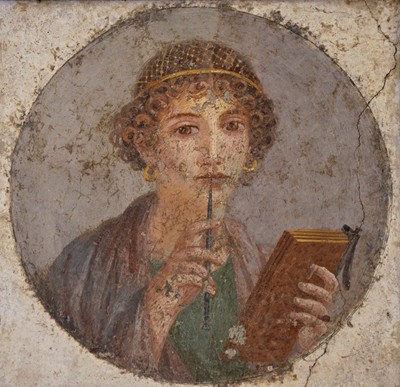
To see the previous installments, click on the following links: #1, #2 , #3, #4, #5, #6, #7
The two duoviri, after a long silence, exchanged a look charged with a gravity that needed no words. The crime they had just witnessed was beyond any everyday incident in the city. It was not just the death of a patrician; it was Lucius Flavius Crispus, a name linked to the powerful gens Flavia, related, however distantly, to the Emperor Vespasian himself. Their faces reflected the storm of thoughts that they had to navigate carefully. They knew that any mistake in the investigation could lead to their ruin.
The most experienced duoviri, Servius Albinus, closed his eyes for a brief moment, as if weighing every word before speaking. Finally, leaning towards his young colleague, Publius Quintilius, he murmured:
-This crime... is not like the others. We can't afford mistakes here.
Publius nodded, his face calm, but there was a glint of concern in his eyes. They knew that the crime required meticulous investigation, but also that a mistake could cost them more than their careers: the emperor's favour. And if Vespasian heard the news without a clear resolution, the consequences would be unpredictable.
-We should be cautious,’ Servius continued, looking around, making sure no one else could hear them. If something goes wrong in this investigation, we will both pay the price. We need... a way out, someone to delegate to, someone who can take the blame if things don't go our way.
Publius frowned, trying to follow his mentor's logic. It was then that Servius added, in an even lower tone:
-I know who we should go to.
That night, in the gloom of his domus, Servius consulted the one person he trusted completely. His wife, Livia, was a shrewd and astute woman, far more so than her position as the wife of a magistrate would suggest. She had proved on numerous occasions that she could see beyond the obvious, and her advice had been very helpful in his political rise. Livia, sitting by an oil lamp, listened attentively as her husband recounted the day's events, the implications of the murder and the need to find a solution.
-It's not just an ordinary murder,’ Servius said, looking at his wife in the hope of a strategy. We need someone who can investigate, someone with insight, but who won't compromise us. If something goes wrong…
Livia, after a few seconds of reflection, replied calmly:
-Hispanus! He is your answer.
Servius was surprised by the speed of her response, but he also knew that she always had a plan. Hispanus was a man of uncertain origin, with a reputation that spread throughout Pompeii as a clever and astute individual, though his past was an enigma to most. Known for solving problems that others preferred to avoid, Hispanus was often called upon for delicate matters that could not be handled by less skilled hands.
-Hispanus,’ Servius repeated, weighing the name.
Livia nodded with conviction:
-He is a man with no direct connections to the patriciate, no clear loyalties. If something goes wrong, he will take the blame, not you. Besides, his insight can be useful in this case. He has a way of seeing things that others overlook. Convince him to investigate... and if something goes wrong, he will be the one who is marked, not you.
The next day, in the pale light of dawn, Servius and Publius agreed to search for Hispanus. The cold morning air enveloped the still empty streets of Pompeii, as the fate of the merchant, of the dead patrician and of the whole investigation began to be drawn around this mysterious man.
To be continued
Header Image:
A woman holding writing implements, a wax tablet and stylus. Source: Naples National Archaeological Museum
Excellent work! I love the continuity and the pace. Very suspenseful. My only critique would be that you repeated the fact that there can be not mistakes in the investigation about five times in different words.
Bravo! The mystery continues ...
It's getting more interesting!
Thank you very much for your encouragement, Uly ( @CocoPop ), T Newfields ( @T-Newfields ) and @yumiyumayume